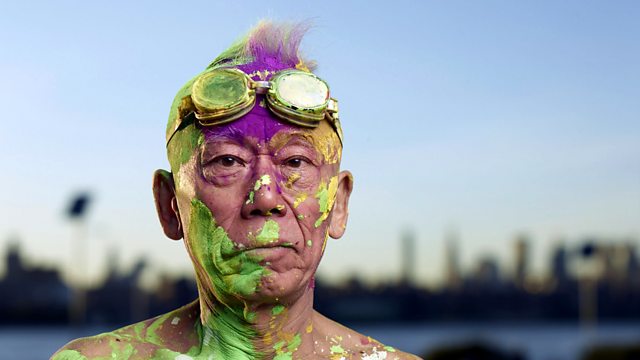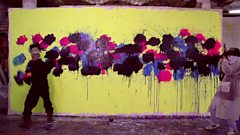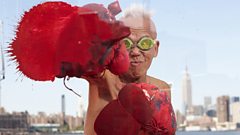
Cutie and the Boxer
Documentary which explores love, sacrifice and the creative spirit through the 40-year chaotic marriage of two Japanese artists in New York, as they prepare for a joint exhibition.
Oscar-nominated documentary which explores love, sacrifice and the creative spirit through the 40-year chaotic marriage of two Japanese artists in New York, by following the rivalries that emerge as the couple prepare for a joint exhibition. Surviving decades of hardship, thwarted aspirations and the husband's chronic alcoholism, they are a study in artistic symbiosis.
Now 80 years old and finally sober, renowned 'boxing' painter Ushio still treats his wife Noriko as his assistant. Noriko, emerging from her husband's shadow, creates intimate drawings entitled 'Cutie' that tell the story of her challenging past with Ushio.
The film moves fluidly between past and present, combining observational filming, archival footage and animated sequences of Noriko's drawings. A moving portrait of a couple wrestling with the eternal challenges of marriage, against a background of lives dedicated to art.
Last on
More episodes
Clip
-
![]()
Ushio Shinohara punching away in his studio
Duration: 02:00
Cutie and the Boxer director Zachary Heinzerling answers the Storyville Q&A

What is more important, story or character?
In my films, both are equally important and inseparable. What makes the character fascinating is their story and vice versa. Even if you choose to have a film with little or no plot, or not to explain a person's story in a film, their past is an essential a part of their character and reveals itself sporadically in gestures or dialogue or in places where plot exposition isn't the necessarily the intention, but occurs regardless. In Cutie and the Boxer, there was a purely surface-level fascination with the Shinoharas before I knew their backstory.Ěý But of course the depth of the film owes itself to the complicated nature of their 40 year plus relationship.
Ěý
Ěý
What made you first want to explore the subject?
At first, I was simply struck by the beauty in their faces and the raw spirit and emotion that emanated from every action they performed. They seemed to be the last of a dying breed of “pure” artists, living every breath in the pursuit of some transcendence through art. I idolized this aspect, and saw an attractiveness in places where perhaps the artists themselves saw pain. The process of making the film became the process looking behind this romanticized view of this unconventional lifestyle and finding truths, both beautiful and painful, in their bond to each-other and to art.
Ěý
ĚýHow long did it take to get the film off the ground?
I began shooting the film the day I met them. I come from a cinematography background, and owned my own equipment, so it really didn't take any time or financing to begin filming.
Ěý
ĚýWhat were you most surprised to learn in the course of production?
I was surprised by how open the Shinoharas were with me. They had no idea how intense a process this was going to be.Ěý At times, they were anxious for me to complete the film. But at the same time, they knew that the result would be that much more honest and revealing the longer I continued.Ěý They stopped wondering why or what exactly I was filming and began to simply exist naturally as if I wasn't there. One of the best examples of this in the film is when I follow Ushio into the bathroom and film him showering. He knew I was there, but never stopped to consider why.
Ěý
ĚýWhat have been the differences in reception to the film in countries it has now travelled to?
The reception has been generally good in the countries the film has screened. In Japan, the film obviously holds a different meaning than in the US. It has played well in Japan, and the Shinoharas have become celebrities there in a way. People's reaction to the Shinohara's relationship varies by country and by age: Certain countries and/or generations understand the sort of long, dependent relationship the Shinoharas are cemented in, and others find it harder to explain.
Ěý
ĚýWhich documentary has most inspired you?
Grey Gardens
Ěý
Favourite Website/blog?
http://www.canopycanopycanopy.com/
Ěý
Person you’d most like to interview (living or dead?)
Cleopatra
Ěý
Best piece of filmmaking advice you’ve ever been given?
The editor is the most essential part of making a good documentary. Choose wisely.
ĚýĚý
Best piece of filmmaking equipment you can’t live without?
Gaffers tape
ĚýĚý
Favourite film of all time?
Tarkovsky's Nostalghia
Ěý
Ěý
Best recent read?
The Love Affairs of Nathaniel P.
Credits
| Role | Contributor |
|---|---|
| Director | Zachary Heinzerling |
| Series Editor | Nick Fraser |
Broadcast
- Mon 17 Feb 2014 22:30


